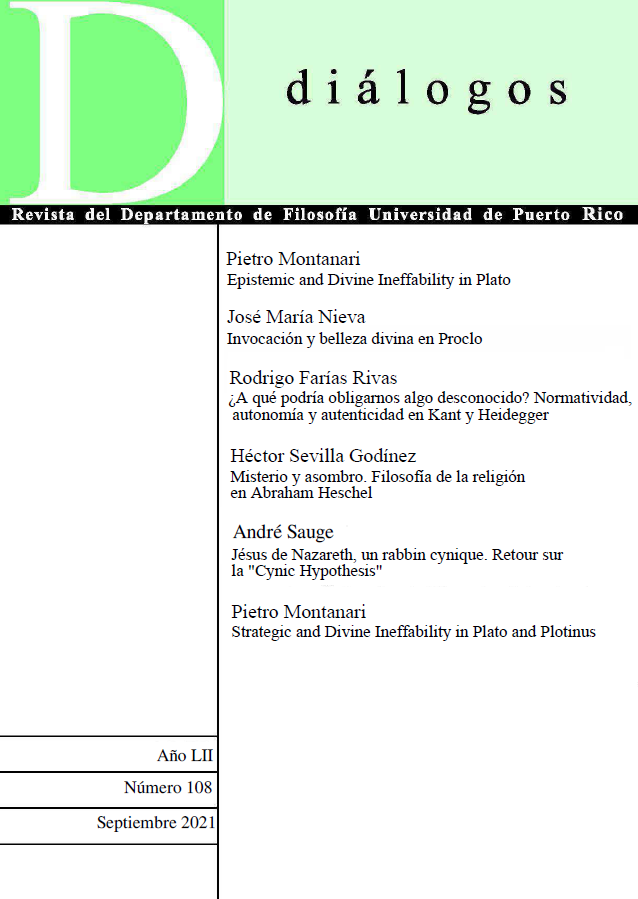Résumé
Ineffability in Plato is a conundrum. There are at least four dimensions of ineffability in Platonic texts: epistemic (divine), strategic (religious), unspeakability and incommunicability. In this paper, I deal only with the first dimension, which is strictly epistemic in kind, and defend that Plato rejects divine ineffability, namely, the belief that the knowledge of the divine in general is inaccessible to the human mind. Several crucial passages attest to this rejection unequivocally. They show that Plato attached a great philosophical relevance to what I call the equivalence-principle, namely, the interdependence or specularity between human and divine intelligence. The assertion of this principle represents the Platonic path to absolute knowledge, which I try to locate in the broader context of the history of philosophy, from early philosophers to Hegel.

Ce travail est disponible sous licence Creative Commons Attribution - Pas d’Utilisation Commerciale 4.0 International.

